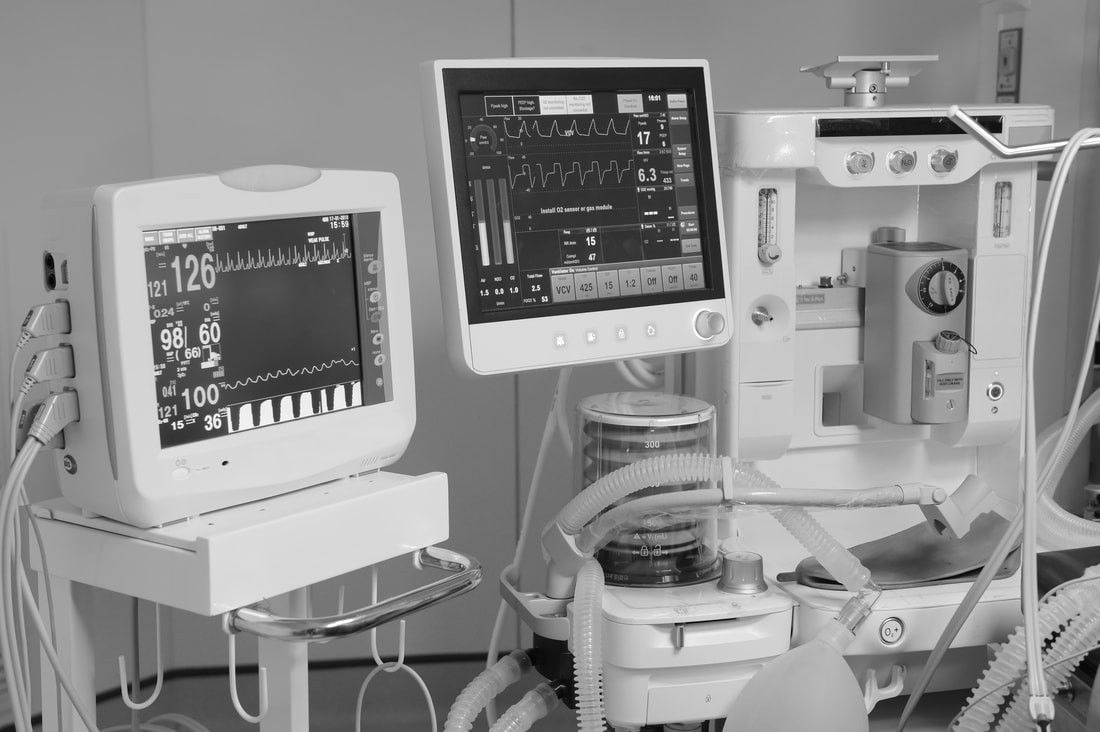DePuy ASR Defective Hip Implant Recall - September 2011 - One Year On
It is now one year since the announcement of DePuy ASR defective hip recall intruded on the lives, health and well-being of some 2,000 families here in the southeast of Ireland. In those 12 months, much has happened and been learned. The anniversary offers a good opportunity to summarise the current position.
ASR is just a brand name given by DePuy to 2 types of artificial hip made entirely of metal. In August 2010, DePuy Orthopaedics (a division of the global healthcare giant Johnson & Johnson) were obliged to recall these artificial hips due to unacceptably high reports of failure internationally. 1 in 8 patients were requiring new and painful surgery after just 5 years to replace hips they had been told should last 15 to 20 years or even longer. Many more patients were reporting hip and groin pain, stiffness and adverse reactions to the metal which was found to be wearing more quickly than expected. Surgeons were also reporting that when they operated on patients with these defective implants, they were finding damage to the bone and soft tissues around the metal implants.
As these implants had already been given to 92,000 patients worldwide, the recall was clearly not a step lightly taken by DePuy but many orthopaedic experts have since commented that it should have been done much earlier, as early as 2007 when high failure rates were first reported in Australia. Clearly had this been done, or had patients been informed of this, many Irish people now affected would have insisted on a different type of implant and would have been spared a great deal of worry, pain and for some, much worse.
Here in Tipperary and in other parts of the southeast, those affected received their DePuy ASR hips at the HSE Lourdes Orthopaedic Hospital in Kilkenny and since 2008 at Waterford’s new private hospital – Whitfield Clinic. Both of these hospitals have since managed the recall which involved firstly the shelving of all ASR implants so that they could not be used on any future patients.
Next came the process of notifying all patients who had already received the implant. With more ASR implants per capita here in the southeast or Ireland than anywhere else in the world, the recall became a very local story. Almost everyone reading this will know someone affected.
Each patient was brought back to have special tests to analyse the levels of metal ions in their blood. These ions are subatomic particles, circulating the body which are slow to be excreted and they give scientists an indication of whether or not the artificial metal hip is wearing poorly. These metal ions are not themselves the problem but if they are present at higher than normal levels, it suggests that the artificial hip is performing poorly and kicking off metal debris in the area of the hip. It is this metal debris which causes problems at the hip, leading in some patients to collections of fluid, damage to bone and unnatural growths of soft tissue. Where metal ion readings were high, patients were then brought back for a second blood test and in many cases, MRI scans were ordered to investigate whether fluid or soft tissue was present and where these finding were made, patients were indicated for surgery to remove the metal implant and replace it with a ceramic and plastic alternative.
I represent a large group of such patients and from that broad sample, some trends have clearly emerged. In the first place, the majority of problems relate to the socket part of the artificial hip. This component is called the acetabular cup and it had in many cases failed to bond properly with the hip bone into which it is hammered. In the ASR devices, this metal cup is not cemented or screwed but is wedged into place and experts believe that this is a problem. Many patients who do not have high levels of metal wearing have still had very bad experiences with this product because of this failure to bond with the hip bone.
Then there are the patients with high metal ion levels. These patients have devices that are wearing badly; the ball is rubbing off the socket excessively leading to metal filings or particles coming away in to the adjoining tissue where the body’s immune system then reacts leading to collections of fluid and new tissue growth as described above. Where this has happened or seems likely to happen, the surgeon will generally recommend that the ASR implant be removed and replaced with a different type of device. This replacement surgery is called ‘revision surgery’.
For those who have had their revision surgery or have been listed for that new surgery, the medical aspect of the debacle is nearing an end and the legal side is getting underway. Those patients who have had their DePuy ASR hip replaced will in most cases be entitled under Irish law to full compensation for the pain and suffering from the faulty implant to date, the second surgery and the long rehabilitation process that inevitably follows such major surgery. They may also have future healthcare issues as there are only so many times that this type of surgery can be performed as each operation takes away more bone and reduces the prospect of success in any necessary future hip operations. For these patients, only now can court proceedings be commenced and this process is now underway at my practice.
ASR is just a brand name given by DePuy to 2 types of artificial hip made entirely of metal. In August 2010, DePuy Orthopaedics (a division of the global healthcare giant Johnson & Johnson) were obliged to recall these artificial hips due to unacceptably high reports of failure internationally. 1 in 8 patients were requiring new and painful surgery after just 5 years to replace hips they had been told should last 15 to 20 years or even longer. Many more patients were reporting hip and groin pain, stiffness and adverse reactions to the metal which was found to be wearing more quickly than expected. Surgeons were also reporting that when they operated on patients with these defective implants, they were finding damage to the bone and soft tissues around the metal implants.
As these implants had already been given to 92,000 patients worldwide, the recall was clearly not a step lightly taken by DePuy but many orthopaedic experts have since commented that it should have been done much earlier, as early as 2007 when high failure rates were first reported in Australia. Clearly had this been done, or had patients been informed of this, many Irish people now affected would have insisted on a different type of implant and would have been spared a great deal of worry, pain and for some, much worse.
Here in Tipperary and in other parts of the southeast, those affected received their DePuy ASR hips at the HSE Lourdes Orthopaedic Hospital in Kilkenny and since 2008 at Waterford’s new private hospital – Whitfield Clinic. Both of these hospitals have since managed the recall which involved firstly the shelving of all ASR implants so that they could not be used on any future patients.
Next came the process of notifying all patients who had already received the implant. With more ASR implants per capita here in the southeast or Ireland than anywhere else in the world, the recall became a very local story. Almost everyone reading this will know someone affected.
Each patient was brought back to have special tests to analyse the levels of metal ions in their blood. These ions are subatomic particles, circulating the body which are slow to be excreted and they give scientists an indication of whether or not the artificial metal hip is wearing poorly. These metal ions are not themselves the problem but if they are present at higher than normal levels, it suggests that the artificial hip is performing poorly and kicking off metal debris in the area of the hip. It is this metal debris which causes problems at the hip, leading in some patients to collections of fluid, damage to bone and unnatural growths of soft tissue. Where metal ion readings were high, patients were then brought back for a second blood test and in many cases, MRI scans were ordered to investigate whether fluid or soft tissue was present and where these finding were made, patients were indicated for surgery to remove the metal implant and replace it with a ceramic and plastic alternative.
I represent a large group of such patients and from that broad sample, some trends have clearly emerged. In the first place, the majority of problems relate to the socket part of the artificial hip. This component is called the acetabular cup and it had in many cases failed to bond properly with the hip bone into which it is hammered. In the ASR devices, this metal cup is not cemented or screwed but is wedged into place and experts believe that this is a problem. Many patients who do not have high levels of metal wearing have still had very bad experiences with this product because of this failure to bond with the hip bone.
Then there are the patients with high metal ion levels. These patients have devices that are wearing badly; the ball is rubbing off the socket excessively leading to metal filings or particles coming away in to the adjoining tissue where the body’s immune system then reacts leading to collections of fluid and new tissue growth as described above. Where this has happened or seems likely to happen, the surgeon will generally recommend that the ASR implant be removed and replaced with a different type of device. This replacement surgery is called ‘revision surgery’.
For those who have had their revision surgery or have been listed for that new surgery, the medical aspect of the debacle is nearing an end and the legal side is getting underway. Those patients who have had their DePuy ASR hip replaced will in most cases be entitled under Irish law to full compensation for the pain and suffering from the faulty implant to date, the second surgery and the long rehabilitation process that inevitably follows such major surgery. They may also have future healthcare issues as there are only so many times that this type of surgery can be performed as each operation takes away more bone and reduces the prospect of success in any necessary future hip operations. For these patients, only now can court proceedings be commenced and this process is now underway at my practice.
|
For those patients who have not yet been advised to undergo corrective revision surgery, the worry and inconvenience of ongoing review continues. These patients will be reviewed at yearly intervals, at least for the next 4 years, with blood tests and where necessary, MRI scans, to monitor their condition. It is a dark cloud for many and from my experience, one that has been poorly handled by the hospitals involved. Patients have had to insist in order to see even their blood test results and information for patients has been very poor. The HSE only furnished patients with an information leaflet this summer.
Meanwhile, those patients who have had to undergo revision surgery in the HSE have been discouraged in their lawful request to retain the metal hip components removed. A HSE official recently told me that if my clients wanted these implants (their own bodily property) returned to them, they would have to pay between €1,500 and €2,000 for the privilege while they admitted that they were happy to return the components to DePuy for free - so no prizes for guessing whose side they are on, as usual! I would be surprised if the process of sterilising the components cost more than €10.On this basis I have been dealing with this outrageous affront to injured patients on a case by case basis but the suggestion alone is a scandal. In whose best interest are the HSE this? |
One year on, legal cases are beginning to issue and those affected can have some consolation that Irish law is very clear on one simple point; they are entitled to and will receive compensation for the harm that has been caused to them by defective medical devices, regardless of the obstacles tossed by those responsible or any who work with them in that effort.





